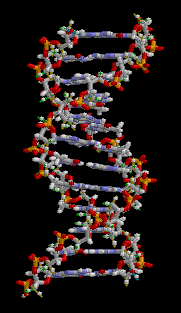 Synthetic biology is the application of engineering principles to altering components of biological systems, like genes and cells, towards creating new and revised living things (watch the video below for an introduction). It's arguably the most radical, cutting-edge laboratory science field today, and one that calls on its scientists to grapple with ethics as well as biotechnology. At the forefront of this life science revolution is the University of California Berkeley-led consortium SynBERC: the Synthetic Biology Engineering Research Center, with partner colleagues at UCSF, Stanford, MIT, and Harvard. Just this week, principal synbio investigators from these institutions came together with industry scientists and ethicists for a symposium on the UCB campus titled Programming Life: the revolutionary potential of synthetic biology, co-sponsored by SynBERC and Discover Magazine. Whether we are going to continue down the road of reengineering life was not the question so much as how we will go about that delicate task and what the implications and promises are of such a bold project.
Synthetic biology is the application of engineering principles to altering components of biological systems, like genes and cells, towards creating new and revised living things (watch the video below for an introduction). It's arguably the most radical, cutting-edge laboratory science field today, and one that calls on its scientists to grapple with ethics as well as biotechnology. At the forefront of this life science revolution is the University of California Berkeley-led consortium SynBERC: the Synthetic Biology Engineering Research Center, with partner colleagues at UCSF, Stanford, MIT, and Harvard. Just this week, principal synbio investigators from these institutions came together with industry scientists and ethicists for a symposium on the UCB campus titled Programming Life: the revolutionary potential of synthetic biology, co-sponsored by SynBERC and Discover Magazine. Whether we are going to continue down the road of reengineering life was not the question so much as how we will go about that delicate task and what the implications and promises are of such a bold project.
Tags: 2014, CA, 2013, University of California Berkeley, biofuels, synthetic biology, Southwest, California, University of California, genetic engineering, Berkeley, BioResearch Product Faire Event, Research, Berkeley Labs, UCBerk, UC Berkley
 By now we all know that DNA is an informational molecule encoding the genetic instructions used in the development and functioning of all known living organisms and many viruses (Wikipedia). But very recently, Harvard University bio engineers at the Wyss Institute have shown that deoxyribonucleic acid can also be used as a tool. Specifically, two teams have published eye-opening studies on using DNA creatively to:
By now we all know that DNA is an informational molecule encoding the genetic instructions used in the development and functioning of all known living organisms and many viruses (Wikipedia). But very recently, Harvard University bio engineers at the Wyss Institute have shown that deoxyribonucleic acid can also be used as a tool. Specifically, two teams have published eye-opening studies on using DNA creatively to:
Tags: Wyse Institute, synthetic biology, 2012, Massachusetts, bio research, Boston, BioResearch Product Faire Event, MA, Harvard, Harvard Medical School


